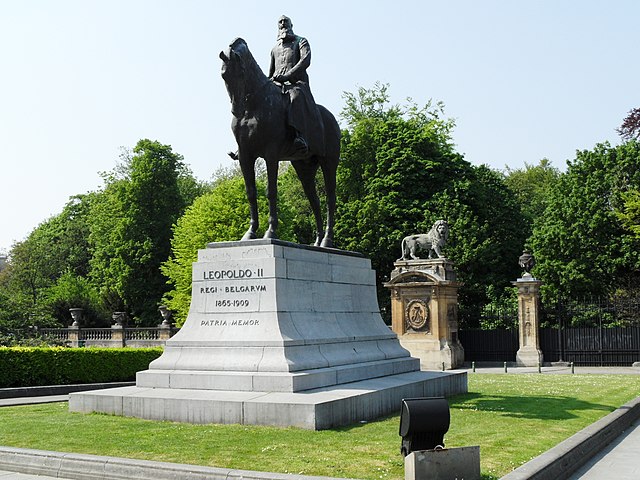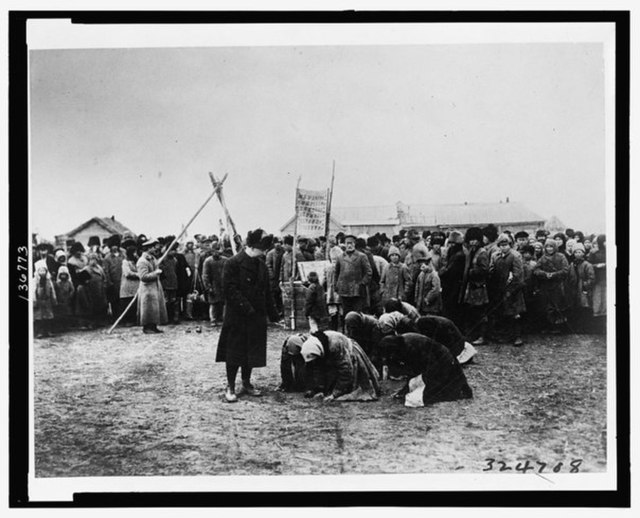The decolonisation of Africa was a series of political developments in Africa that spanned from the mid-1950s to 1975, during the Cold War. Colonial governments gave way to sovereign states in a process often marred by violence, political turmoil, widespread unrest, and organised revolts. Major events of decolonisation of Africa include the Mau Mau rebellion, the Algerian War, the Congo Crisis, the Angolan War of Independence, the Zanzibar Revolution, and the events leading to the Nigerian Civil War.[1][2][3][4][5]
Equestrian statue of Leopold II of Belgium, the Sovereign of the Congo Free State from 1885 to 1908, Regent Place in Brussels, Belgium
The Swedish are invited by the Akan King of Futu to erect a "stony house" for the purpose of trade.
The Cold War was a period of geopolitical tension between the United States and the Soviet Union and their respective allies, the Western Bloc and the Eastern Bloc, that started in 1947, two years after the end of World War II and lasted to 1991, the fall of the Soviet Union.
Allied troops in Vladivostok, August 1918, during the Allied intervention in the Russian Civil War
American Relief Administration operations in Russia, 1922
Lenin, Trotsky and Kamenev celebrating the second anniversary of the October Revolution
The Battle of Stalingrad, considered by many historians as a decisive turning point of World War II






